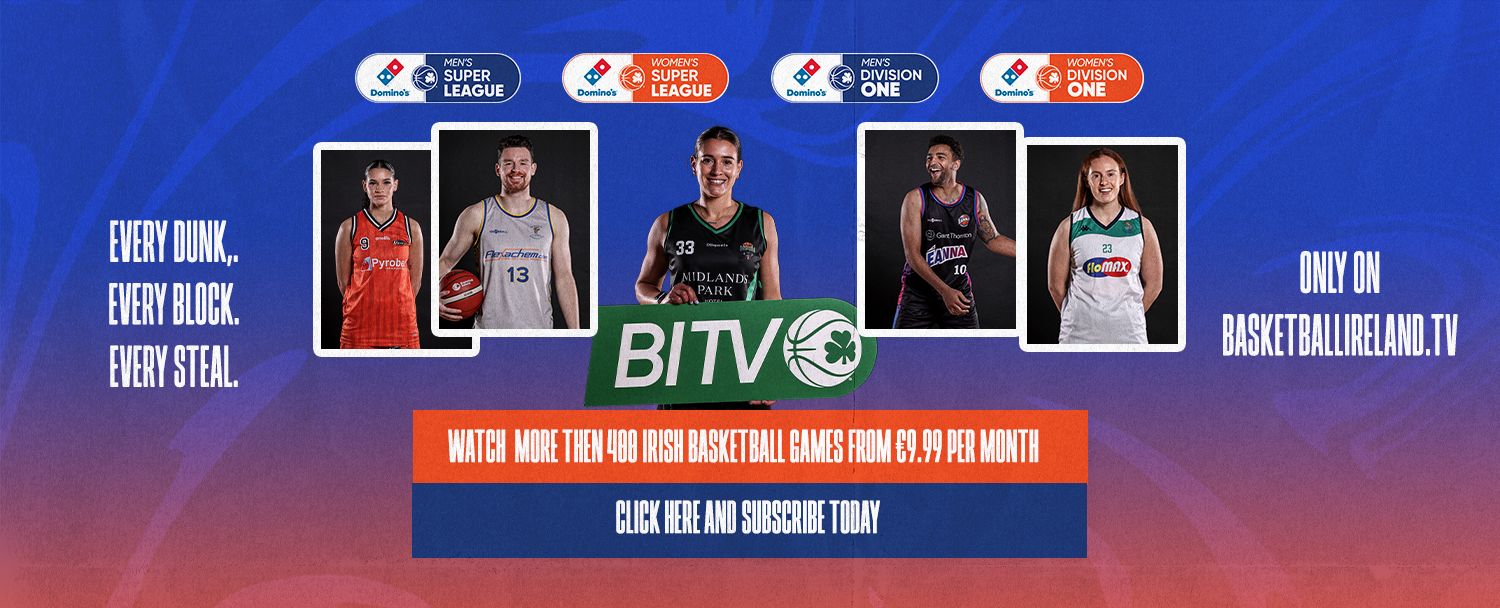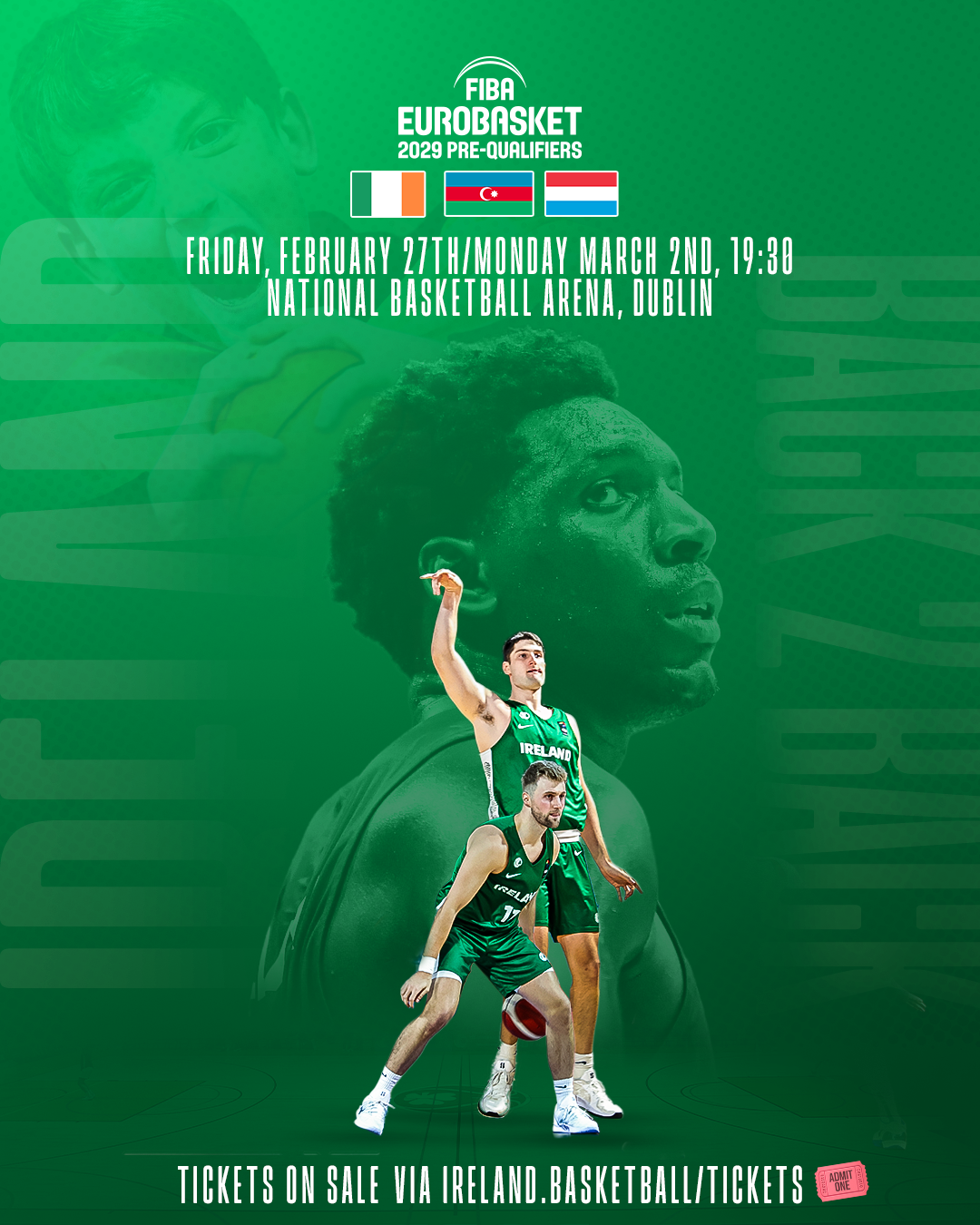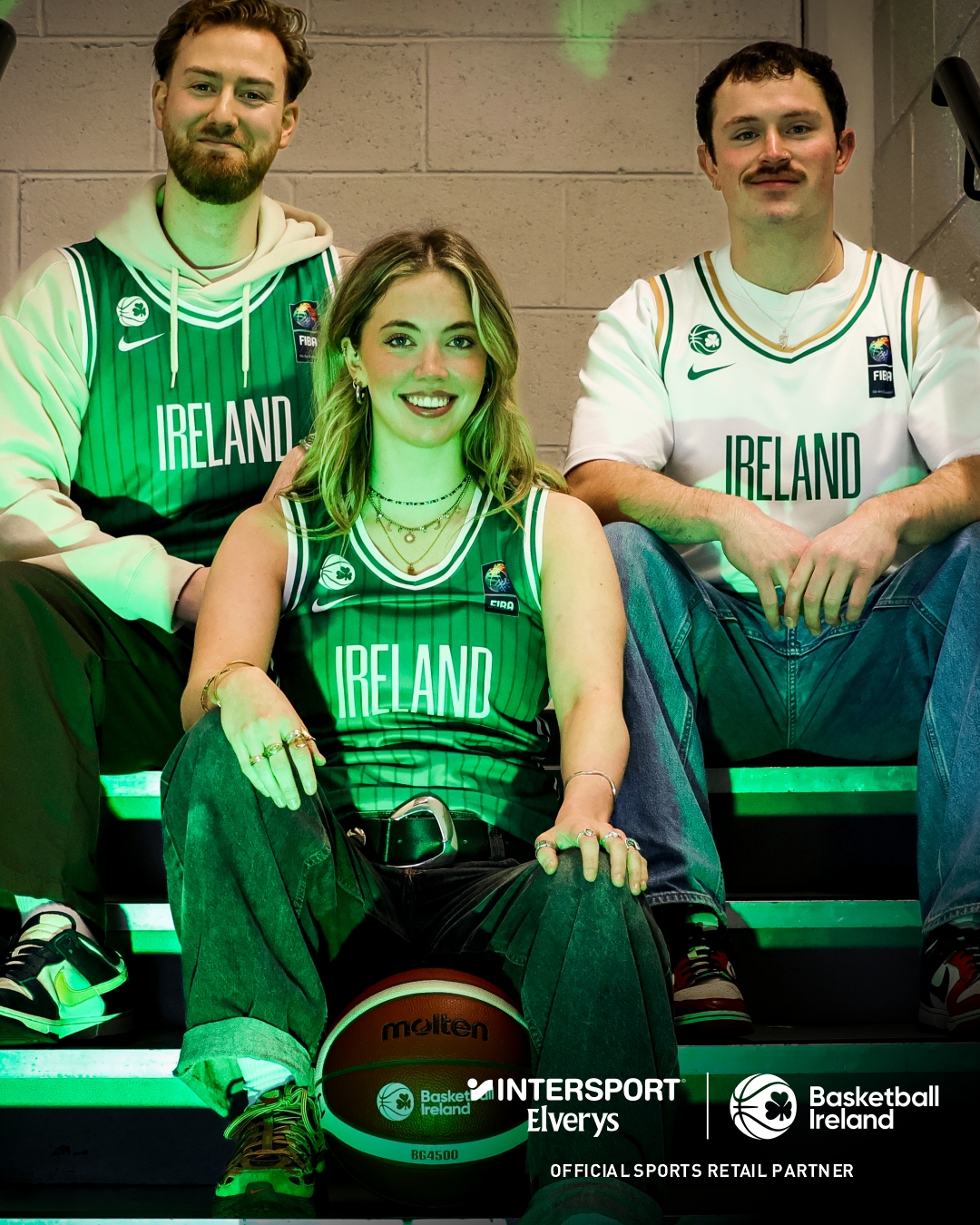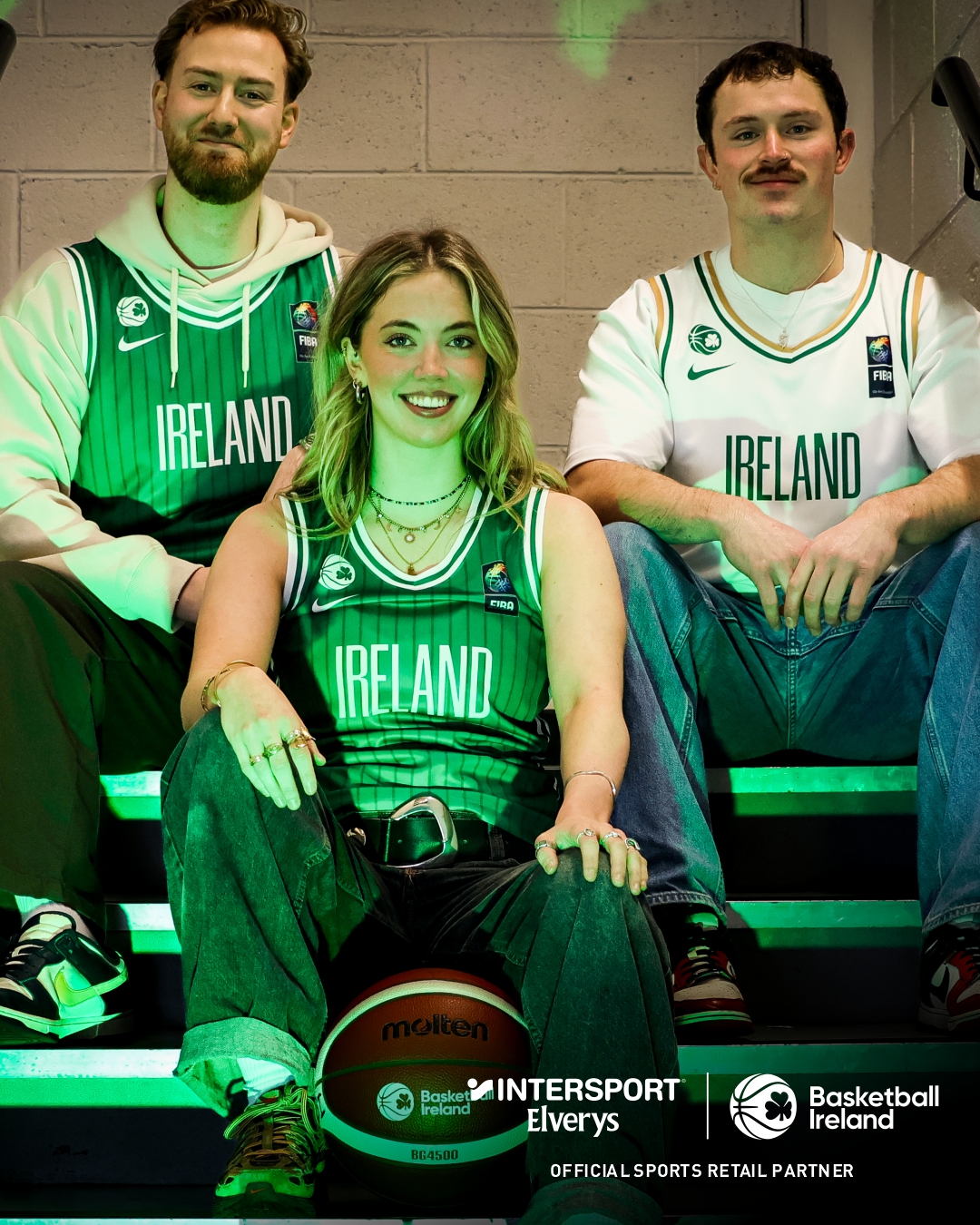Inclusion
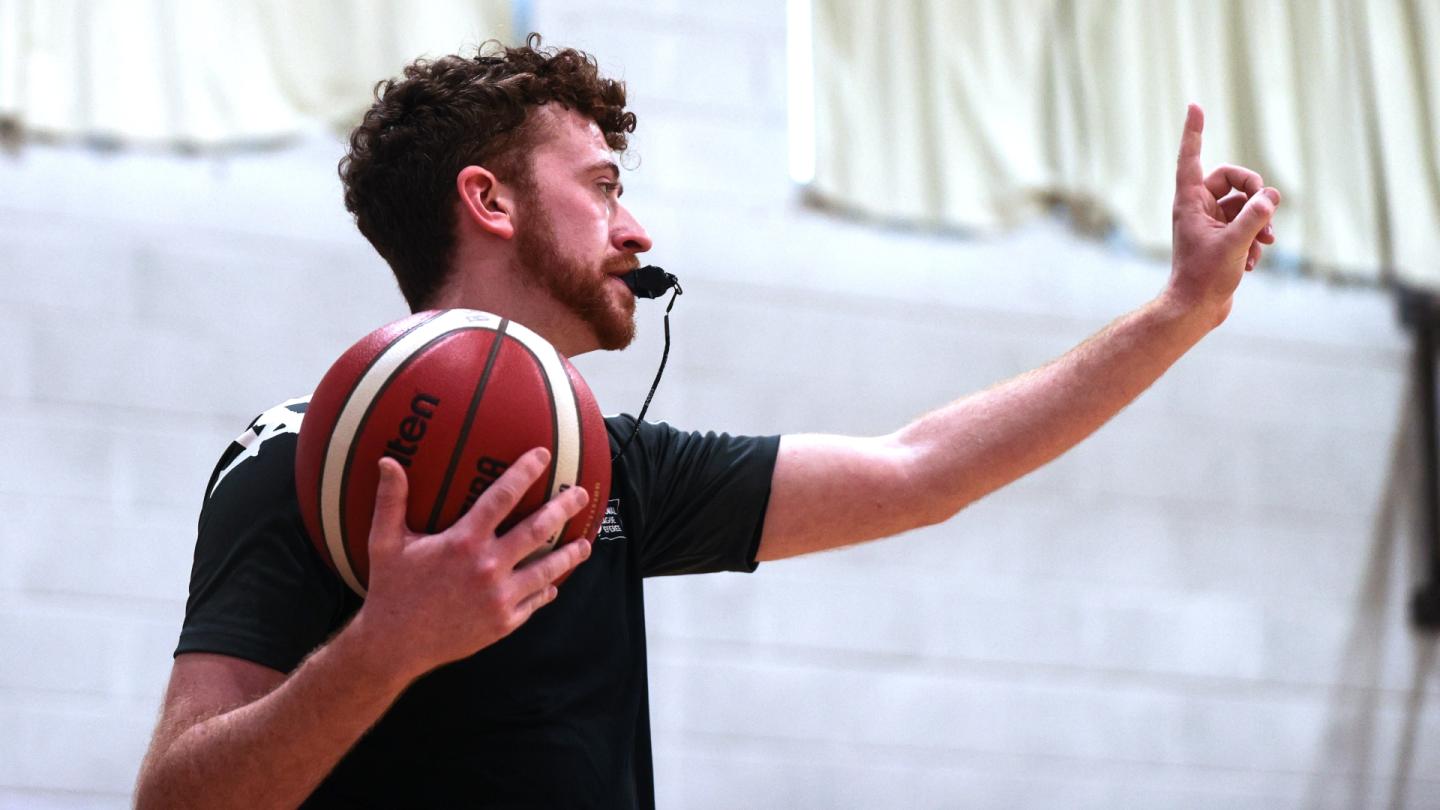
The Big Interview: Adam Wickham
Adam Wickham is a Super League referee, he’s been doing so for three years, Basketball Ireland caught up with him as part of #LetsGetVisible2023
Q: Firstly, how did you get into refereeing?
“I started my refereeing journey all the way back in 2014 while I was in secondary school. My PE teacher asked me to referee some internal school matches at lunchtimes. It didn’t take long for my interest to grow and that summer I attended an introductory course which was being run in conjunction with the National Camp in Gormanstown. I refereed locally in the South East for a few years while I finished up in school, but things really took off in 2019 when I moved to Dublin for work and joined the Dublin Officials’ Association. With a much greater volume of games and skill levels across the Dublin leagues, I was refereeing at a higher standard and had my first National League appointment within a year.”
Q: What would you say to someone who is an aspiring referee if they're thinking of getting involved?
“Do it! Being a referee is initially daunting, but it is also a way to challenge yourself in so many ways. It’s not just about learning the rules and interpretations, there are also many other areas that you can challenge yourself to develop, including physical fitness, mental preparation, communication skills and leadership. Refereeing is also a social activity, you’ll never be refereeing on your own and there is so much support available to those who want to start their journey as a referee and to continue their development. Refereeing is very rewarding and there’s nothing quite like the buzz that comes with it, so I would encourage anyone with an interest to get onto an introductory course and throw yourself into it!”
Q: What is the best thing about being a referee?
“For me, the best thing about being a referee is the amazing opportunities that come with getting involved, whether that is getting to know people across the sport, travelling to new venues, or working towards getting an appointment for a big game. Hard work and dedication to improving pays off as a referee and your achievements will be recognised with reward and further challenges when you are ready.”
Q: It's a high-pressured environment, how do you stay composed particularly when a game is in the balance and you have the pressure of home fans, or a major occasion like a final?
“Adrenaline plays a huge part in moments like these and it tends to make you razor sharp to what’s happening around you, but there is also a huge amount of mental preparation that comes with being a referee on big games and FIBA even has a manual for referees on it. In the moment it’s all about controlling the controllables, making sure that the basics are correct, so that simple errors aren’t overlooked. Is the game clock and shot clock correct, are the right players on the court and is the inbounding position correct. Keeping control of yourself in huge moments is huge and there is an aspect of reminding yourself that you wouldn’t be in this position if you weren’t ready for the challenge. Then there’s the huge communication piece that comes with big moments, making sure that your officiating team are in position and ready to referee, it provides the support that everyone needs to feel ready. It’s a combination of all these things that creates the best environment for me to take in my surroundings and referee to get the best outcome for the game.”
Q: What is the most challenging aspect of being a referee?
“I think one of the most challenging aspects of refereeing at a high level is mental fatigue. Some games can be nearly two hours and during that time everyone will expect the same level of engagement and effort from the referees. Becoming physically tired never affects me during games, because the mind is so engaged with what is happening that you don’t realise that you’ve been constantly running to keep up with the play. There are times that you can feel yourself slipping mentally though, and each referee has different methods to combat that feeling and get things back on track. Refereeing basketball at a high level is a huge mental challenge, because of the many rules and variables with plays and players. It is a sport that requires instantaneous decision making. It takes training and practice to be consistent and engaged in every game, but even more so to carry the same energy and focus from the beginning right through to the end.”
Q: It's Let's Get Visible this week, what's been your experience of basketball and its inclusive nature?
“I’m very happy to say that I’ve never had a negative experience as a member of the LGBTQ+ community within basketball. Basketball is a sport built on respect and I’m very proud to see that Basketball Ireland is committed to making it as inclusive a sport as it can be. I’m proud to see initiatives like the foundation of the diversity panel, events being organised in conjunction with Sporting Pride Ireland and initiatives like Socia-Ball to get people into the sport. It doesn’t matter where you’ve come from, or what your background is, basketball is for everyone and game respects game.”
Q: What would you say to a member of the LGBTQ+ community who may be thinking of taking up the sport, whether as a referee, official, player or coach?
“There is something in basketball for everyone, regardless of what your background is and it’s a very friendly sport to be involved in. It’s also a sport where you can be comfortable to bring all of you, even the parts that are different from everyone else. Everyone in basketball brings something to the table and you will too. Playing the sport might not be for everyone, but there are so many roles that you can choose from which might suit your interests. If you’re technically minded, you could become a table official, statistician or even work towards being a commissioner. If you want a bit more action and strategy you could become a coach. For those that see themselves doing something with a mix of lots of different skills consider refereeing. I firmly believe that there is a role for everyone within basketball, so don’t be afraid to reach out and see what the many options are and how you can get involved.”
How important are weeks like this, Let's Get Visible, to highlight inclusion and showcase role models in sport?
“There remains to be certain aspects of sport that push members of the LGBTQ+ community away and these issues need to be constantly challenged and addressed, so that the sport really is for all. Weeks like this are so important to make people feel included, represented and comfortable within the sport. It also reminds everyone to think about what they say and do, use more inclusive language and create an environment that feels safe for everyone. You never know if there is someone on the verge of getting involved with the sport who perhaps isn’t quite sure about the culture within basketball. If there is someone afraid to address an issue which affects their participation, or even if there is someone on your team who is just about ready to tell you that they are a member of the LGBTQ+ community – visibility inspires confidence for everyone to get out there, get involved and be themselves.”

